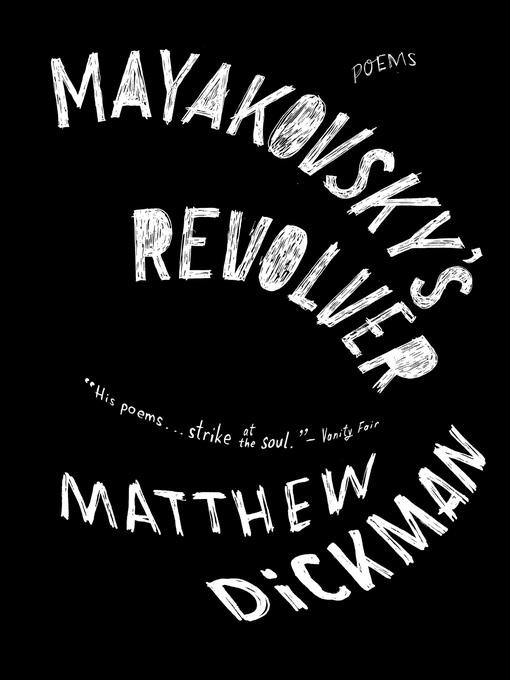
Mayakovsky's Revolver
Poems
- اطلاعات
- نقد و بررسی
- دیدگاه کاربران
نقد و بررسی

June 25, 2012
The central sequence of Dickman’s raw, frightening, well-told second collection commemorates his deceased brother, remembering their shared delinquent years, their attraction to drink and prescription drugs, and the severe mental illness that disfigured his brother’s adulthood. Around that 13-section elegy Dickman arranges other recollections of youth, lust, and strife, “my teenage mystery and finger, my skateboard and Circle Jerks album,/ all those ghosts like birds-of-paradise/ being lifted out of the dark.” Death is for Dickman’s late brother “your little love, your hot nipple-action/ of fear, a train/ in the dark before it breaks,” while the tranquilizer Halcion once seemed to the poet a necessity of life: “I can feel you melt on my tongue like a naked girl wearing a diamond/ crown, standing barefoot on a bed of ice.” Dickman’s jagged lines connect his own and his family’s self-destructive impulses to the Russian modernism of Vladimir Mayakovsky, who shot himself, and to other eminent modernists. Do not confuse the deceased brother, never named here, with Matthew’s twin Michael, also an eminent poet. Even jaded readers could be won over by the last, longest poem, in which Dickman pivots to the present, listing persuasive reasons to live.

July 1, 2012
The follow-up to Dickman's 2008 debut, All-American Poem, is a tour de force of runaway grief and wanton introspection that attempts to navigate the thin line between despair and hilarity. Occasioned by a troubled brother's suicide ("his brain turned its armadas against him, wanting him to burn down/ his cities and villages"), sprawling elegies plow headlong through the poet's cluttered, quasi-surreal memory bank no matter what may surface--childhood cruelty, guilt, regret--summoning a cast of spectral characters, such as the woman with "eyes/ the color of hairspray, cloudy and sticky/ and gone, but beautiful!" Dickman's knack for trap-door humor ("I wonder if the two of us knew/ that I would grow up afraid of needles and the color white/ or that she would fall from a window"), pop social commentary ("To have two thousand/ friends on Facebook you don't know/ but stare at every night because you're lonely"), and screwball imagery ("the moon like the inside of a jawbreaker") are entertaining but wearing over the long haul. VERDICT A digressive, self-indulgent cleverness too eagerly upstages the poet's ostensibly serious subject matter, undermining what could have been an effective exploration of personal loss and redemption.--Fred Muratori, Cornell Univ. Lib., Ithaca, NY
Copyright 2012 Library Journal, LLC Used with permission.




دیدگاه کاربران